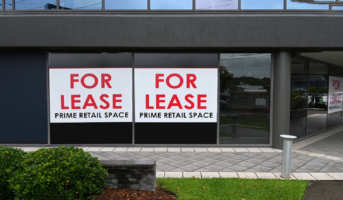Mumbai witnessed a 6-year high gross absorption of 8.5 million square foot (msf). in 2023, registering a growth of 18% YoY, breaching pre-COVID level, according to a report by CBRE South Asia titled ‘CBRE India Office Figures Q4 2023’. In Q4 2023, the city recorded office space absorption of 3 msf, while supply stood at 1.9 msf. Key sectors that drove absorption included BFSI (50%), media and marketing (17%) and engineering and manufacturing (10%).
Notable transactions recorded during Q4 2023 in the city were:
- Viacom 18 leased 400,000 square foot (sqft) in One International Center- IV / Indiabulls Finance Centre – IV
- HDFC leased 195,000 sqft in Arihant Aura – C
- SFMG India Credit leased 194,000 sqft in Embassy 247- Phase I / 247 Park
Leasing activity was led by the IT Segment with a 46% share, closely followed by the non-SEZ segment with 45% and SEZs accounted for a 9% share. The report further highlighted that Mumbai office space take-up was driven by small-sized (less than 10,000 sqft) deals during Q4 2023.
On a pan-India basis, the office sector in India witnessed a gross absorption of 61.6 msf during 2023 across nine cities, registering a growth of 7% YoY, marking a 4-year high leasing activity after it touched the peak in 2019 with 65 msf. Development completions increased by about 13% YoY to reach 56.7 msf, an all-time high during 2023. Developers continued to exhibit their efforts towards sustainability, with nearly half of the newly completed developments during 2023 being green-certified (LEED or IGBC).
As per the report, Bangalore, Hyderabad and Chennai accounted for nearly 57% of the yearly leasing activity. On an annual basis, BFSI firms drove leasing with a share of (22%), followed by technology companies (21%), engineering and manufacturing companies (15%) and flexible space operators (14%). American multinationals led the leasing activity in the BFSI sector, accounting for about 48% of the total leasing as they leased office space for their global capability centres (GCCs).
Office space take-up was dominated by small- (less than 10,000 sqft) to medium-sized (10,000–50,000 sqft) transactions in 2023 with a share of 84%. The share of large-sized deals (greater than 1,00,000 sqft) in 2023 marginally increased to 7% from 6% in 2022. Bangalore and Hyderabad dominated large-sized deal closures in 2023, followed by Chennai and Delhi-NCR, while a few such deals were also reported in Pune and Mumbai.
Q4 2023 witnessed the highest ever quarterly office leasing activity. Leasing during the quarter (Oct-Dec’23) increased by 16% QoQ and 20% YoY to 19 msf. Bangalore, Hyderabad and Chennai accounted for nearly 60% of the quarterly leasing activity. Quarterly office leasing was driven by BFSI players and technology corporates which accounted for a share of 20% each, followed by engineering and manufacturing companies (16%), flexible space operators (12%), research, consulting and analytics firms (5%) and media and marketing firms (5%).
In the quarter, domestic firms led leasing with a 45% share, primarily led by flexible space operators and BFSI firms. Within the Indian BFSI firms, the space take up was led by commercial banks and insurance firms that increased their appetite for office space as they undertook expansionary activities during the year. As per the report, new completions increased by 3% YoY to touch 15.6 msf. Hyderabad, Bangalore and Delhi-NCR dominated new completions in Q4 2023 with a combined share of 56%.
Anshuman Magazine, chairman and CEO- India, South-East Asia, Middle East and Africa, CBRE, said, “In 2023, the global economy, while grappling with monetary tightening and geopolitical challenges, fared better than expected. Most major economies managed to avoid a recession, while the Indian economy continued demonstrating resilience in the year gone by. The Indian economy is anticipated to exhibit similar resilience in 2024 as well, led by strong domestic growth and sustained capital expenditure. The office sector also performed better than expected, with many occupiers finalising deals in the latter half of the year. Driven by steady momentum in enquiries, this demand is likely to remain largely stable during H1 2024. However, we expect demand to pick up momentum during H2 2024, led by clearer visibility of the global macroeconomic situation and an uptick in the global information technology (IT) services sector.”
Ram Chandnani, managing director, advisory and transactions services, CBRE India, said, “Global firms would also continue to finalise their leasing decisions as they aim to set up or expand their footprint in the country. The office sector is likely to witness expansion by domestic firms from sectors such as banking, financial services, and insurance (BFSI) and engineering and manufacturing, while also seeing growth from other sectors such as life sciences and flexible space operators. While the demand in the office sector in 2024 is expected to be led by Bangalore, followed by Delhi-NCR and Hyderabad, Chennai and Pune are also being increasingly preferred by occupiers on account of quality supply addition, presence of skilled talent, robust infrastructure, and competitive costs”.
Office market outlook for 2024
Here are a few predictions for 2024 highlighted by the report.
Office sector to witness steady demand with a possible uptick in 2024
- Driven by steady momentum in enquiries, the demand is likely to remain largely stable during H1 2024.
- Global firms would also continue to finalise their leasing decisions as they aim to set up or expand their footprint in the country.
- Office sector is likely to witness expansion by domestic firms from sectors such as banking, financial services and insurance (BFSI) and engineering and manufacturing.
- The sector would continue to witness growth from other sectors such as life sciences and flexible space operators.
- Office sector demand in 2024 is expected to be led by Bangalore, followed by Delhi-NCR and Hyderabad, Chennai and Pune are also being increasingly preferred by occupiers on account of quality supply addition, presence of skilled talent, robust infrastructure, and competitive costs.
GCCs to continue being a prime demand driver
- Global occupiers from sectors such as BFSI, technology and engineering and manufacturing are likely to continue expanding their GCC services in India, even foraying into multi-functional centres in 2024.
- The office sector is likely to witness the expansion of small and mid-sized firms seeking to upgrade their digital and deep technology services such as artificial intelligence and machine learning.
- Mature GCC occupiers, with a large existing footprint and long-term vision, could also explore large-sized campus developments in the top cities of India
- Newer entrants, on the other hand, would likely explore flexible spaces that offer the convenience of scaling / downsizing as required.
Investible-grade assets pipeline to remain strong
- The supply pipeline is expected to remain strong with several high-quality, investment-grade assets likely to be introduced in 2024.
- Bangalore, Hyderabad, and Delhi-NCR would continue dominating the completions, followed by Chennai, Pune, Mumbai and Kolkata.
- Developers would also continue catering to occupiers’ need for state-of-the-art facilities and amenities through well-located and ‘future proofed’ assets.
- With the top Indian cities already witnessing considerable infrastructure upgradation, well-located buildings which are accessible through public transport are likely to command a premium in the market.
- Besides, select micro markets across the country are also likely to witness moderate growth in rentals led by the infusion of new quality supply or low availability of contiguous spaces.
Flexible spaces to see sustained demand from enterprises
- Increasing managed and co-working spaces’ usage is likely to remain a key portfolio strategy for occupiers.
- During 2023, flexible space operators’ leasing accounted for a 14% share in overall office leasing.
- As per CBRE’s India Office Occupier Survey, Q2 2023, a major share of respondents are planning to allocate more than 10% of their office portfolios to flexible spaces. This proportion is expected to rise from 43% in Q1 2023 to 56% by 2025. With corporates expected to continue framing hybrid working policies, the demand for flexible spaces is likely to remain resilient.
Employee experience on top of occupiers’ agenda
- As hybrid working takes precedence, occupiers have firmly placed elevating employees’ experience on top of their agenda.
- Employers are looking to provide an experiential workplace to employees which is not just amenable to various working styles but also provides comfort and furthers their health.
- Occupiers would consider aspects such as agile workplace layouts, biophilic designs and well-being initiatives to foster a comprehensive approach to employees’ wellbeing.
Sustainable features to emerge as ‘must-haves’ in office buildings
- Amidst rising concerns over climate change, top office developers are increasingly focusing on sustainable office buildings.
- Aspects such as waste and water management, sustainable sourcing, renewable energy usage and energy efficiency are becoming some of the top priorities for developers.
- Top office occupiers too have committed to achieving net zero by 2050 and are likely to gravitate towards sustainable buildings with a focus on green certifications.
| Got any questions or point of view on our article? We would love to hear from you. Write to our Editor-in-Chief Jhumur Ghosh at jhumur.ghosh1@housing.com |

Dhwani is a content management expert with over five years of professional experience. She has authored articles spanning diverse domains, including real estate, finance, business, health, taxation, education and more. Holding a Bachelor’s degree in Journalism and Mass Communication, Dhwani’s interests encompass reading and travelling. She is dedicated to staying updated on the latest real estate advancements in India.
Email: dhwani.meharchandani@housing.com












